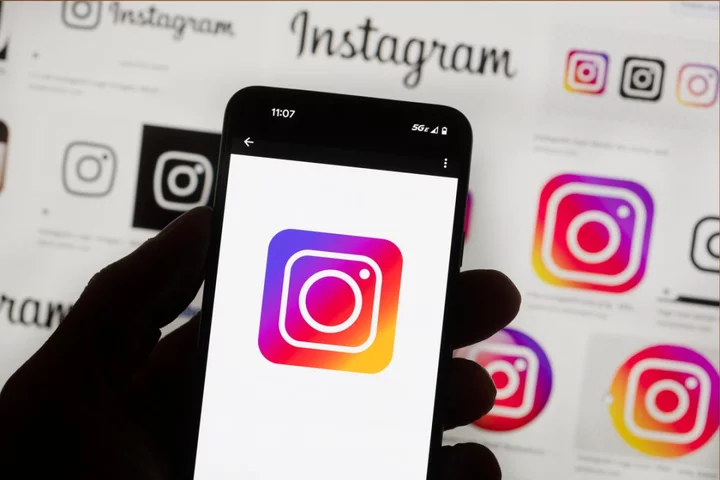
Political ads on Instagram and Facebook can use deepfake technology, Meta says – but they must say so
Ads on Instagram and Facebook can use artificial intelligence technology to create photos, videos and audio of events that don’t actually exist, Meta has said. But those advertisers must make clear that they are not actually real if they are advertising on political or social issues, Meta said. When they do so, Meta will add a small note on the ad that gives information about the fact that it has been created with artificial intelligence. Meta said that it was introducing the new policy “to help people understand when a social issue, election, or political advertisement on Facebook or Instagram has been digitally created or altered, including through the use of AI”. It will go into effect in the new year, across the world, it said. The new policy will require advertisers to make clear if their political ads have an image, video or audio that looks real but was digital created or altered so that it looks like someone is saying something they didn’t, shows a person or event that is not actually real, or poses as a depiction of a real event but is actually fake. If the content is digitally created or altered by in ways that “are inconsequential or immaterial to the claim, assertion, or issue raised in the ad”, Meta said. It gave examples such as using technology to adjust the size or sharpen their image, but noted that those could still be problematic if they change the claim in the ad. But it also said that those fake videos, images and audio will still be allowed to be posted on the site. Instead, Meta will “add information on the ad when an advertiser discloses in the advertising flow that the content is digitally created or altered”, it said, and that same information will appear in Meta’s Ad Library. It said that it would give further information about that process later. It did not say how advertisers will flag such ads, what will be shown to users when they are flagged, and how those who do not flag them will be punished. Meta did say that it would remove any ads that violates its policies, when they are created by artificial intellgience or real people. If its fact checkers decide that a piece of content has been “altered”, then it will stop it from being run as an ad, the company said. “In the New Year, advertisers who run ads about social issues, elections & politics with Meta will have to disclose if image or sound has been created or altered digitally, including with AI, to show real people doing or saying things they haven’t done or said,” said Nick Clegg, Meta’s president for global affairs in a series of tweets that announced the new policy. “This builds on Meta’s industry leading transparency measures for political ads. These advertisers are required to complete an authorisation process and include a ‘Paid for by’ disclaimer on their ads, which are then stored in our public Ad Library for 7 years.” Read More The rise of the AI friend – but what happens when ‘bots’ turn into ‘bad’ mates? Instagram working to let people make AI ‘friends’ to talk to Meta launches paid-for version of Instagram and Facebook
2023-11-08 19:57
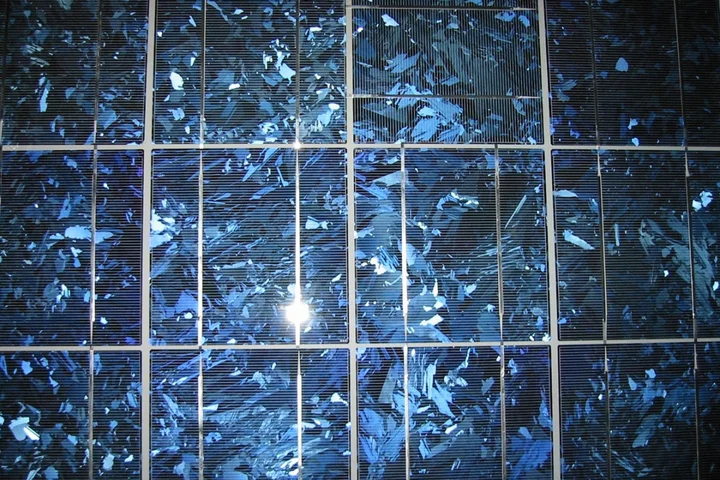
Solar panel world record smashed with ‘miracle material’
Researchers have made a breakthrough with a so-called miracle material to break the efficiency record for solar panel electricity generation. A team from the Chinese solar technology firm Longi set a new world record of 33.9 per cent for a silicon-perovskite tandem solar cell, breaking the previous record set in May this year by King Abdullah University of Science & Technology (KAUST) in Saudi Arabia. The new efficiency record also broke the theoretical limit of 33.7 per cent for the first time of standard single junction cells, which are found in commercial solar panels. “This provides meaningful empirical data to demonstrate the advantage of crystalline silicon-perovskite tandem solar cells over crystalline silicon single junction solar cells in terms of efficiency,” the company noted in a statement. “The emergence of crystalline silicon-perovskite tandem technology has opened up a new track for the development of next-generation high-efficiency solar cell technology. This means that the same area, absorbing the same light, can emit more electricity.” The theoretical efficiency limit of silicon-perovskite tandem solar cells is 43 per cent, however this level is unlikely to ever be realised on a commercial scale. The first production of ultra-efficient perovskite solar panels could begin in China, with researchers from Nanjing University saying earlier this year that a design breakthrough has made mass production possible. According to the researchers, the next-generation panels will be 50 per cent cheaper and 50 per cent more efficient than traditional silicon cells, however the efficiency rates will still be a long way off the levels achieved in the lab. UK startup Oxford PV, which is a spin-out from the University of Oxford, is already in the process of commercialising the technology, with hopes of beginning full-scale production at a German facility later this year. “Current silicon solar panels have reached their physical limits. We’ve got a way to transform the efficiency of these solar cells with perovskite,” Chris Case, Oxford PV’s chief technology officer, told The Independent in August. “The biggest challenge by far is durability and reliability. We already have great efficiency – much greater than current silicon cells – so most of our research and development is spent enhancing reliability, not efficiency.” Perovskite has been hailed as a “miracle material” for its potential to revolutionise everything from high-speed telecommunications to renewable energy technologies. Its potential for solar panels is not limited to the efficiency gains compared to traditional silicon cells, but also new ways of using them. Recent breakthroughs include self-healing solar panels that can maintain their efficiency for tens to hundreds of years, as well as double-sided solar panels capable of generating electricity from the Sun’s energy on both sides. The material could also be used in applications ranging from building-integrated solar panels to space-based electricity generation. Read More How tech could turn our homes into renewable energy power stations Hundreds of years after it was discovered, one material is about to change the world Millions could abandon electrical grid with new solar panel advance Millions of Australians left without mobile and internet network after Optus outage Guidance urges parents not to buy smartphones for primary school children
2023-11-08 19:23
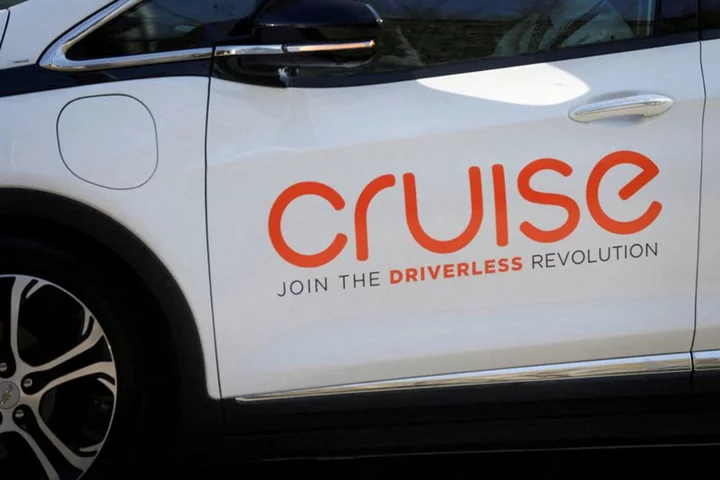
GM's Cruise to recall 950 driverless cars after accident involving pedestrian
By David Shepardson Cruise is recalling 950 driverless cars from the roads across the United States and may
2023-11-08 17:48

Fortinet, rivals fall on concerns around cybersecurity spending
By Samrhitha A (Reuters) -Fortinet sank nearly 18% and sparked a selloff in cybersecurity stocks with a dismal forecast that
2023-11-08 13:48

'Mario Wonder' latest mushroom power-up for Nintendo Switch
By Sam Nussey TOKYO Nintendo made a pitch for the ongoing match fitness of its aging Switch console
2023-11-08 11:21

Nintendo to develop 'Zelda' movie
TOKYO Nintendo said on Wednesday it will develop a live-action film of long running franchise "The Legend of
2023-11-08 06:46
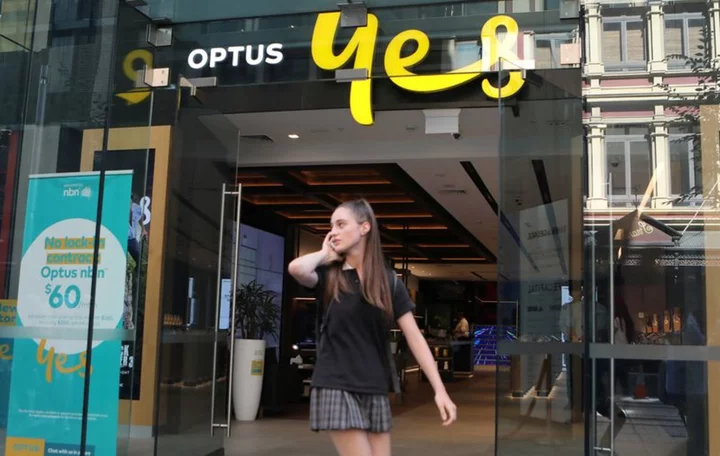
Australia's Optus hit by national network outage
By Renju Jose SYDNEY Australian No. 2 telco Optus on Wednesday reported an outage across its mobile phone
2023-11-08 06:17

Bumble projects quarterly revenue below estimates, shares fall
(Reuters) -Bumble forecast fourth-quarter revenue below Wall Street estimates on Tuesday, in a sign that sticky inflation and growing competition
2023-11-08 05:21
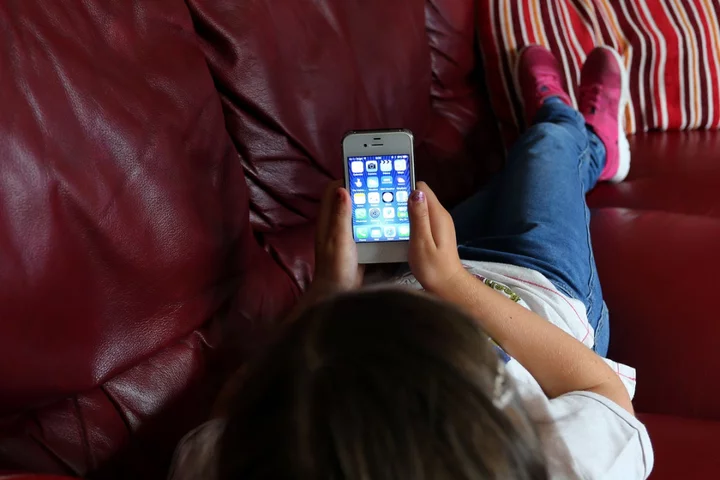
Guidance urges parents not to buy smartphones for primary school children
New guidance urging parents not to buy smartphones for their primary school age children has been introduced The Cabinet has approved a memo outlining the proposal which was brought by education minister Norma Foley. The new guidance is available online and will be sent to all primary schools in the country. The aim is to support parents of primary school children who wish to agree collectively on a voluntary agreement on the use of smartphones for their primary school age children. It is based on a project involving eight schools in Greystones in Co Wicklow that saw parents of primary school pupils collectively agree not to buy smartphones for them. Ms Foley’s plan was prompted by concerns around the potential exposure of younger children to cyber bullying, violent and sexual content and other harmful content on phones. The minister said that there were clear benefits to owning a smartphone but the risks they posed to children had to be managed. Ms Foley said: “Principals tell me that online bullying using smartphones happens outside school hours. “They can’t control it. It happens outside of school. “Children can be exposed to violence and sexual content that no parent would want them to see via their smartphone.” The minister’s party leader, Tanaiste Micheal Martin, used his speech at the Fianna Fail ard fheis on Saturday to flag the move. He told party members why he felt it was important to limit children’s exposures to smartphones. “One of the greatest challenges of today is helping children to navigate an online world, one which brings new threats and affects the ability to maintain healthy connections,” he said. “That is why we will be expanding guidelines and controls on smartphone access in schools – and every family and school will receive guidance on how to navigate this challenge with their children to keep them safe and healthy.” Read More William ‘blown away’ by futuristic technology from Singapore start-ups Return of original Fortnite map causes record traffic on Virgin Media O2 network NatWest creates new AI-powered chatbot capable of ‘human-like’ conversations Succession star Sarah Snook says AI use in film industry needs ‘stringent rules’ Sir Paul McCartney: It was magical to feel like I was reuniting with John Lennon Sexist comments on TikTok ‘more liked’ than non-sexist ones – study
2023-11-08 04:46

'Sophisticated' prosthetic hand found on medieval skeleton
If you thought prosthetic hands were too advanced for people living hundreds of years ago, think again. Archaeologists have found the remains of a man who died in Medieval Germany, who had prosthetics in place of several fingers. The grave was found by pipeline workers in Freising, a town near Munich. The Bavarian State Office for Monument Preservation said: “Even for experienced archaeologists, this was a particularly special find: a skeleton in which parts of the fingers of its left hand are missing.” The archaeologists removed the metal from the man’s skeleton to restore and analyse it. They came to the conclusion that he had lost his fingers at some point in his life. Walter Irlinger, deputy of the general conservator at BSOMP, said: “The hollow prosthetic on the left hand replaced four fingers. The index, middle, ring and pinky fingers are individually formed out of sheet metal and are immobile. The prosthetic fingers lie slightly curved, parallel to one another.” The prosthetic also had scraps of fabric and leather, suggesting that the fingers had a leather cover, and were tied to the hand using straps. There was also a gauze-like material inside the fingers, which may have acted as a cushion for the man’s skin from contact with the metal. That period of German history included the Thirty Years’ War, which ended in 1648, which would have increased the need for amputations and prosthetics. One of the most famous amputees from the time was Götz von Berlichingen – or “Götz of the Iron Hand”. He was a German knight who lost his right hand from a cannon injury at the siege of Landshut in 1504. “In the past, prosthetics looked very much like what they were replacing,” said Jacky Finch, a researcher in the KNH Center for Biomedical Egyptology at the University of Manchester. “Nowadays, implants are placed in the sensory system to control nerve action, rather than devices attached to the body by straps or artificially powered.” The BSOMP statement continued: “Doctors at that time were already thinking about how they could make life easier for amputees. “In central Europe, there are currently around 50 similar prostheses from the late middle ages to early modern age that are known.” How to join the indy100's free WhatsApp channel Sign up to our free indy100 weekly newsletter Have your say in our news democracy. Click the upvote icon at the top of the page to help raise this article through the indy100 rankings.
2023-11-08 01:55
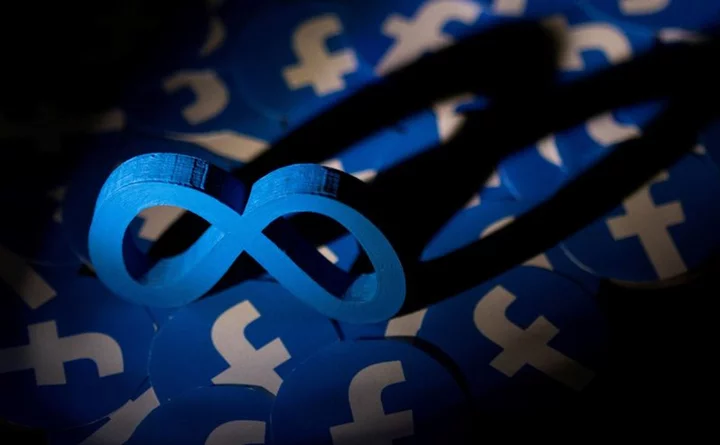
Former Meta employee tells Senate company failed to protect teens safety
By Katie Paul NEW YORK A former Meta employee is testifying before a U.S. Senate subcommittee on Tuesday,
2023-11-08 01:52
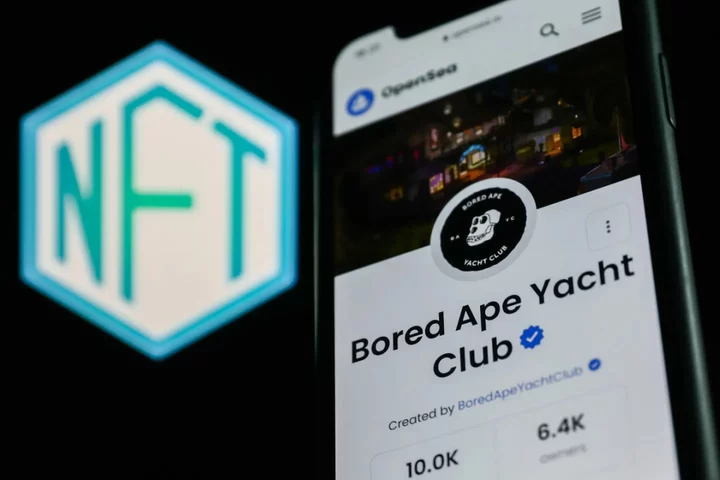
Mystery ‘eye burn’ outbreak linked to NFT event
Several attendees at an NFT festival in Hong Kong have been hospitalised after they reported experiencing vision issues, eye-burning sensations and sunburned skin after the event, which was allegedly lit with UV lighting. ApeFest 2023 was held from Friday to Sunday for members of the Bored Ape Yacht Club and their guests. To be a member, people must own an NFT within the collection of digital ape artworks. The Bored Ape Yacht Club artworks, created by blockchain company Yuga Labs, gained notoriety for becoming an exclusive online club that includes celebrities who have bought a Bored Ape NFT, such as Madonna, Justin Beiber, Serena Williams and many more, according to Decrypt. The NFTs, which, like cryptocurrency, sit on a blockchain; the person who owns the image has sole intellectual property rights and can choose to sell to another owner. Many crypto and NFT owners and fans went to the event, but some came away from the experience with bizarre symptoms. Attendees took to X (formerly Twitter) to ask other fest-goers if they had similar symptoms. One user wrote: “Anyone else’s eyes burning from last night? Woke up at 3am with extreme pain and ended up in the ER.” To which another person, under the username @CryptoJune777, replied: “I woke up at 04:00 and couldn’t see anymore. Had so much pain and my whole skin is burned. Needed to go to the hospital.” @CryptoJune77 also added that a doctor said that it could have been the UV lighting coming from the stage that burned their skin and damaged their eyes. Many other people replied to the tweets, saying they had experienced the same issue, with some also adding that they had to go to hospital. Another user, Adrian ZduÅ„czyk, said he had to pay $3000HKD ($383USD) for his hospital expenses after he was diagnosed with “photokeratitis over both eyes” due to unprotected exposure to UV radiation. “So many of my friends are still unaware they must seek medical help to make sure they end up with no damage, as well,” the user wrote. “Please go get your eyes checked immediately. We’ve most likely been exposed to experience similar to Mt Everest climbers - snow blindness.” UV radiation can cause photokeratitis, which is essentially like sunburning your eye, which can produce symptoms such as blurriness, tearing, redness and, in rare cases, temporary vision loss or colour changes, according to the American Academy of Ophthalmology. Photokertitis is often associated with snow blindness, as climbers, snowboarders, or skiers can experience it when the sun reflects off ice and snow. After the sunburn allegations started circulating on social media, the Bored Ape Yacht Club issued a statement on X. “Apes, we are aware of the eye-related issues that affected some of the attendees of ApeFest and have been proactively reaching out to individuals since yesterday to try and find the potential root causes,” they said in their post. “Based on our estimates, we believe that much less than 1% of those attending and working the event had these symptoms.” “While nearly everyone has indicated their symptoms have improved, we encourage anybody who feels them to seek medical attention just in case,” the club added. The owner of the Bored Ape Yacht Club project, Yuga Labs, told The Verge that it is aware of the situation and is taking the reports seriously. “We are actively reaching out and in touch with those affected to better understand the root cause,” said a spokesperson for the company. “Based on our estimates, the 15 people we’ve been in direct communication with so far represent less than one per cent of the approximately 2,250 event attendees and staff at our Saturday night event.” The Independent has contacted Yuga Labs for further comment. Read More Guidance set to urge parents not to buy smartphones for primary school children ChatGPT update allows anyone to make their own personalised AI assistant Elon Musk weighs in on the scooped bagel debate Guidance set to urge parents not to buy smartphones for primary school children ChatGPT update allows anyone to make their own personalised AI assistant Elon Musk weighs in on the scooped bagel debate
2023-11-08 00:47
